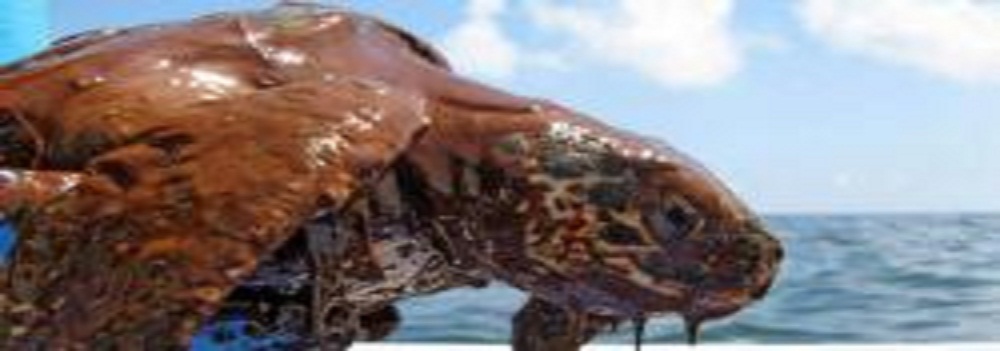Safe Passage, Rescue and Recovery Must Be Mandated in Oil and Gas Lease Regulations
Houston, Texas – Sea turtle advocates are demanding that oil and gas operations be completely re-evaluated and strong new protections mandated to protect sea turtles as part of new oil and gas lease regulations in the aftermath of the BP oil spill. Read Sea Turtle Restoration Project’s environmental scoping comments here.
“The oil and gas industry must protect endangered and threatened sea turtles throughout its operations,” said Carole Allen, Gulf Director of the Sea Turtle Restoration Project, who will be testifying today at the public hearing of the Bureau of Ocean Energy Management, Regulation and Enforcement (BOEMRE) being held at the Airport Marriott Hotel in Houston, Texas. “Everything we knew before is wrong and there is no way oil companies can go back to business as usual if sea turtles are to survive.”
Before the BP Oil spill, the U.S. government estimated that during a major oil spill only about 200 sea turtles would be harmed or killed in the Gulf of Mexico, which was based on a maximum of 193,000 gallons of oil spilling over a period of five days.* The BP Oil spill discharged more than 200 million gallons of oil during three months and at least 1,145 sea turtles were found dead or dying during the BP Oil spill and its aftermath.
“The old offshore oil regulations don’t hold up in the wake of the BP Oil spill and must be completely revamped for all future oil operations,” said Dr. Chris Pincetich, marine biologist with the Sea Turtle Restoration Project.
The highest priorities for protecting endangered and threatened sea turtles from oil and gas activities include:
• Offshore oil and gas exploration, drilling, expansion and operations must avoid sea turtle breeding, foraging and migration habitat for any new or renewed oil and gas drilling platforms, pipelines, or ports;
• Protected marine areas in ocean feeding and migratory habitat for sea turtles must be established where new oil and gas development is prohibited and existing operations phased out, specifically in the Gulf of Mexico;
• New and existing offshore oil operations must be re-evaluated and modified in light of the BP oil spill and new science on sea turtle populations, their status and recovery to eliminate, prevent and avoid harm or jeopardizing their existence as required under the Endangered Species Act;
• Oil and gas corporations must adopt rigorous monitoring and reporting schemes and fund new sea turtle research to better document the impacts of the full scope of oil and gas development, operations, oil spills and decommissioning on sea turtles and marine life.
In addition, the Sea Turtle Restoration Project recommends that all oil spill response and recovery plans should include these measures:
• Independent observers on all oil spill response vessels to record wildlife sightings;
• Sea turtle rescuers be required on all cleanup vessel teams;
• Double or triple the number of qualified wildlife rescue teams on-call;
• Establishment of a volunteer protocol for wildlife rescue assistance workers;
• Maintenance of an effective level of search effort for sea turtles and wildlife;
• Endangered species prioritized for rescue and rehabilitation;
• Sea turtle nesting beaches prioritized for placement of offshore oil booms;
• Chemical dispersants and “controlled burns” banned where endangered species are present.
* See Page 80 of the 2007 Biological Opinion on Offshore Oil and Gas Leases here.
Last month, the President’s commission on the BP spill determined that systematic changes in offshore oil and environmental regulations were needed to prevent another disaster.




